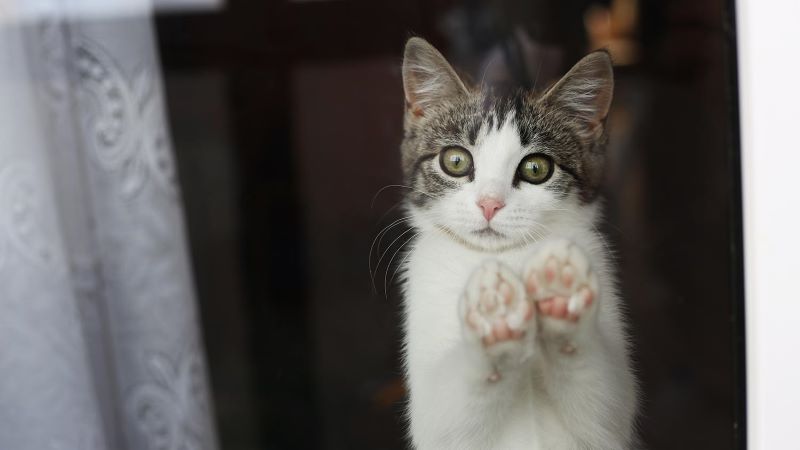Last week, we talked about separation anxiety in dogs, so it only seems appropriate that we address the same issue in cats. According to cat behavior expert, Pam Johnson-Bennett, most people assume that cats are loners who don’t need companionship like dogs. Johnson-Bennett says cats are in fact very social, and thrive on a strong bond between themselves and their owners. Which is why, when left alone, cats may display many of the same separation anxiety behaviors as dogs.
Why cats experience separation anxiety
Cats also experience separation anxiety for many of the same reasons dogs do. Cats who have been neglected in a previous home, weaned too early, or are living in a hectic or unstable environment may exhibit signs of anxiety. These signs range from eating too fast, or not eating at all, excessive meowing, refusing to use the litter box, urinating or defecating on the bed or furniture, and/or excessive self-grooming.
Visit the vet first
If your cat is acting out and you suspect he is experiencing separation anxiety, it is best to have a thorough vet examination before you decide on a diagnosis. A cat who is not using the litter box appropriately may have a urinary tract disease or other medical condition.
Easing your cat's separation anxiety
Once you have determined that your cat’s behavior points to anxiety as a result of separating from you, there are several things you can try, to curb the unwanted behaviors.
- Provide entertainment for your cat when you are not at home. Make use of the horizontal and vertical aspects of your space by investing in a cat tree. Cat trees can be especially helpful in a multi-cat household and are often the difference between cats living in harmony and cats living in duress. You can also use a cardboard box to create elevated areas, hideaways, and tunnels for your cat. The key is to keep him busy, so he won’t miss you so much.
- Try a puzzle feeder or other “treat” toy that you leave out only when you are not at home. Try the PetSafe FUNKitty Egg Cersizer Interactive Toy and Food Dispenser. One review said, “My usually non-playful cat is very motivated to use this toy!” Just be sure you remove the toy when you are home, and offer it again when you leave. Then your cat will associate the favorite toy with down time when you are gone, and may welcome the time to himself.
- Engage in regular play sessions at least twice a day, so that your cat feels loved and respected by you. See our recent post, Cats and the Five Love Languages for ideas on how to show your cat the love.
- Do not make a big production about leaving. Cats pick up on body language, and if you act sad or down about leaving him, he may follow suit and become anxious about being left alone.
- Encourage confidence in your cat. Practice coming and going, increasing the amount of time you are gone each time, and rewarding wanted behavior when you return. Try not to reward needy behaviors.
If all else fails, Gayle O’Konski, DVM recommends installing the Feliway diffuser to diffuse calming pheromones. Or, you may need to enlist the help of your vet. A kitty who is refusing to eat because of anxiety can experience serious health problems. Your vet can prescribe anti-anxiety or appetite-boosting medications.

